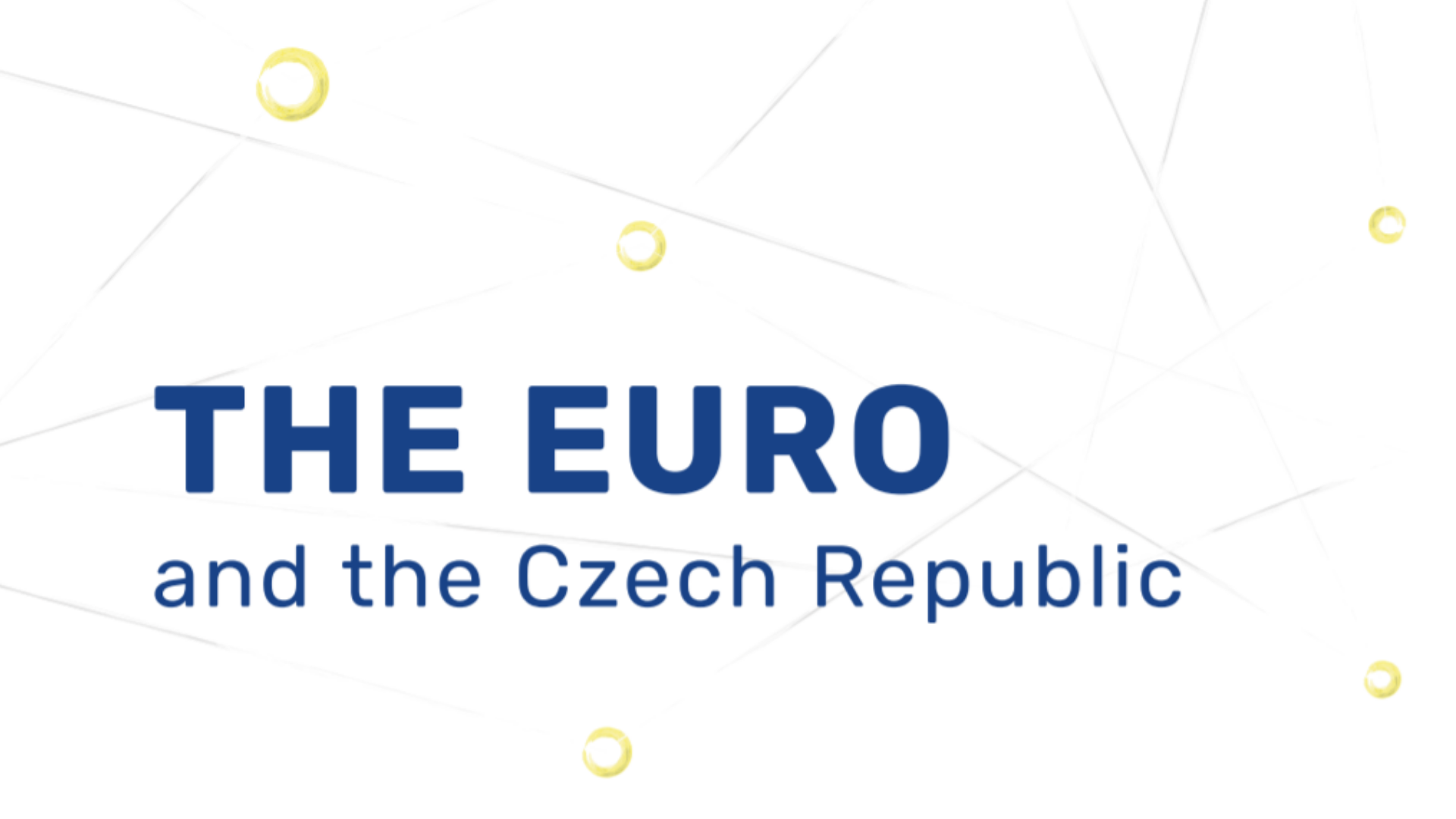
The Euro And The Czech Republic
Between October 29th and November 12th, 2020, the Institute for Christian-Democratic Politics in cooperation with the Wilfried Martens Centre for European Studies and Hanns-Seidel-Stiftung organised a series of online debates called “Euro and the Czech Republic.” The panellists reflected on topics such as how has the current COVID-19 crisis affected the euro and what does it mean for the future of the single European currency, what exactly is standing behind the traditionally rejecting attitude of Czech society towards the euro and why did the Czech and Slovak paths split up in relation to the common European currency. The series was moderated by Julie Hrstková, a commentator of Hospodářské noviny and Czech Radio.
Euro and COVID-19 Crisis – 29. 10. 2020
Ivan ŠTEFANEC, MEP (Slovakia), Member of the Committee on the Internal Market and Consumer Protection
Tomáš PROUZA, President of the Confederation of Trade and Tourism of the Czech Republic
Eoin DREA, Senior Research Officer of the Wilfried Martens Centre for European Studies
Ľudovít BÁN, Head of Czech and International Desk in Commerzbank Prague
The participants of the first debate assessed how the pandemic of COVID-19 had affected and changed the way the major economic branches operate. Considering a further expected digitization, including an extensive provision of products and services online – regardless of state borders – it would be advantageous for the Czech Republic to adopt the euro. “The current COVID-19 crisis has clearly shown that the Czech koruna is by no means a “safe harbour“ and something that would be helping the Czech economy,” observed Tomáš Prouza, while reminding a sharp weakening of the Czech currency and a subsequent price hike due to the outbreak and the course of the pandemic. According to the President of the Confederation of Trade and Tourism of the Czech Republic, services and goods became more expensive to Czech households, and businesses met an increase of costs, causing a huge unpredictability regarding future investments.
Euro and Public Opinion – 3. 11. 2020
Marek MORA, Deputy Governor of the Czech National Bank
Milena HRDINKOVÁ, State Secretary for European Affairs of the Government of the Czech Republic
Marian JUREČKA, Deputy Chairman of the Economic Committee of the Chamber of Deputies of the Czech Parliament
The second debate of the series was focused especially on the political character of an adoption of the euro. A future decision on the political top-level would have a significant effect on the public opinion. “I am convinced of the following notion: if the three relevant political figures, i. e. a future president, together with a future prime minister and a future minister of finance, decide to take a common position in this regard and start working together in order to assure a broad public debate – pointing to possible benefits, but also to possible risks of adopting the euro, in a rational way and on the basis of facts – a move in a significantly positive direction when talking about the public opinion would be possible”, emphasized the Deputy Chairman of the Economic Committee of the Chamber of Deputies of the Czech Parliament Marian Jurečka. From an economic point of view, the Czech Republic would be ready to adopt the euro. However, one of the general obstacles when talking about this major decision seems to be a long-standing instability of the euro zone.
The Czech and Slovak way – 12. 11. 2020
Elena KOHÚTIKOVÁ, Vice Chairwoman of the Supervisory Board of Všeobecná úverová banka (Slovakia)
Helena HORSKÁ, Chief Economist of Raiffeisenbank
Zbyněk FROLÍK, Founder of the LINET Group
The Czech and Slovak perspectives were explored in the third and final part of the series of debates. Based on the Slovak experience, the speakers have considered the extent to which an unity across the political spectrum should be reached in order to make even very unpopular structural reforms possible, as well as to elaborate a clear plan and bring a well-thought-out communication strategy regarding the adoption of the euro. As seen in the Czech Republic, the country’s representatives have long been taking a rather pragmatic approach focused on short-term economic benefits, often associated with some tendentious interpretations, missing the factual arguments and the willingness of political representation to carry out extensive reforms. “We will be thinking about whether to adopt the euro or not so long that Europe itself moves towards a deeper economic integration alone. And the countries that do not join it in the right time will be left on the periphery – which could be a dangerous situation for the Czech Republic, as the European market is and will remain a key economic sphere for us,” stated the Chief economist of Raiffeisenbank Helena Horská. However, she added that neither the Czech koruna nor the euro are “a panacea” and something that would save the Czech economy. A decisive factor is to be found in the endeavours for necessary reforms and on long-term efforts aiming at maintaining a healthy economic system.
Click here to read the brochure.